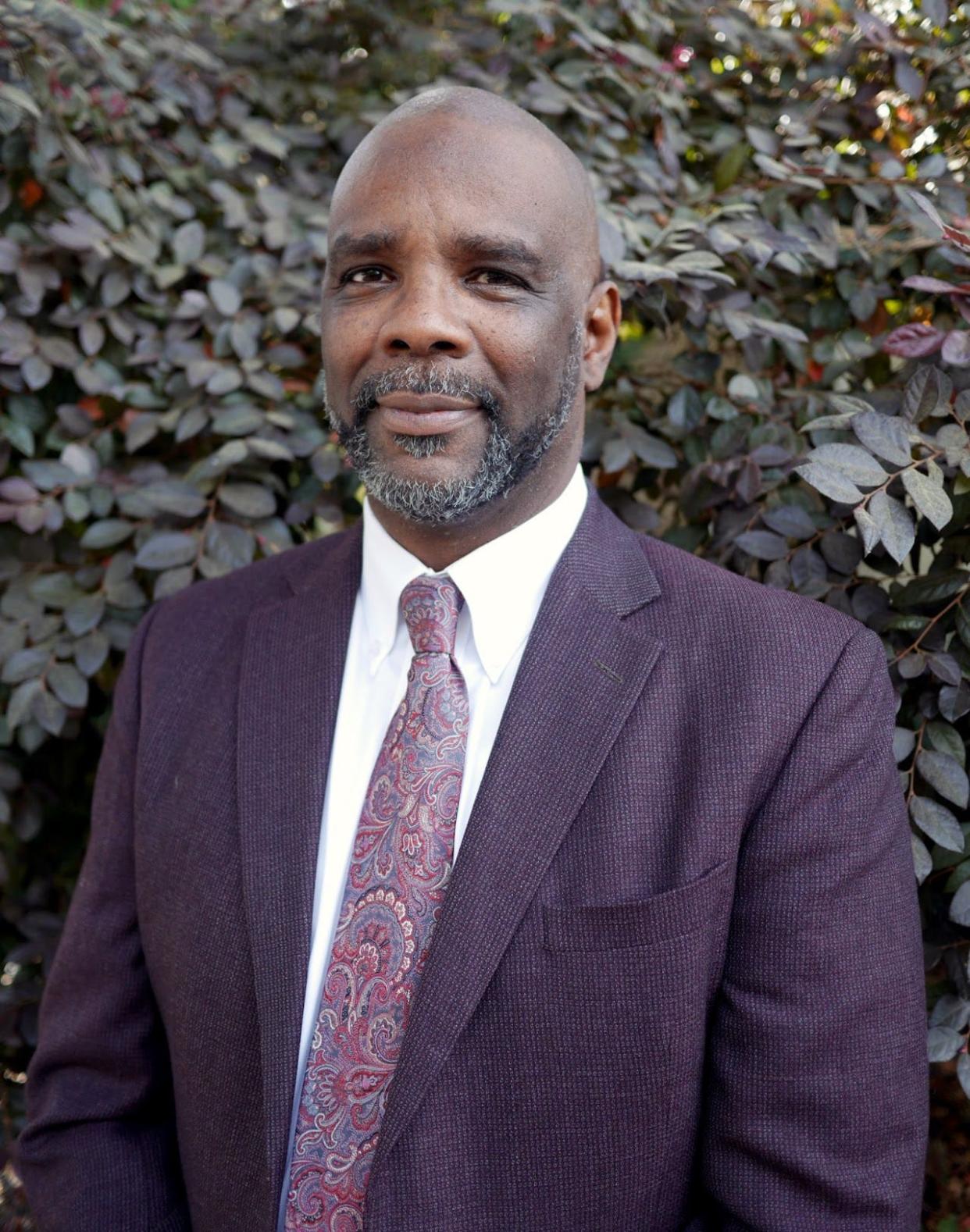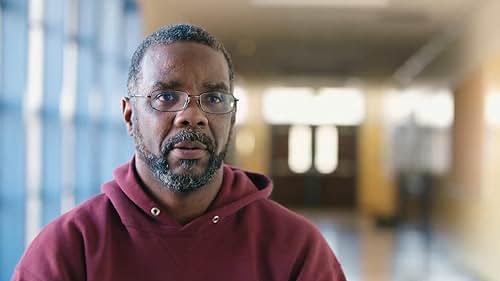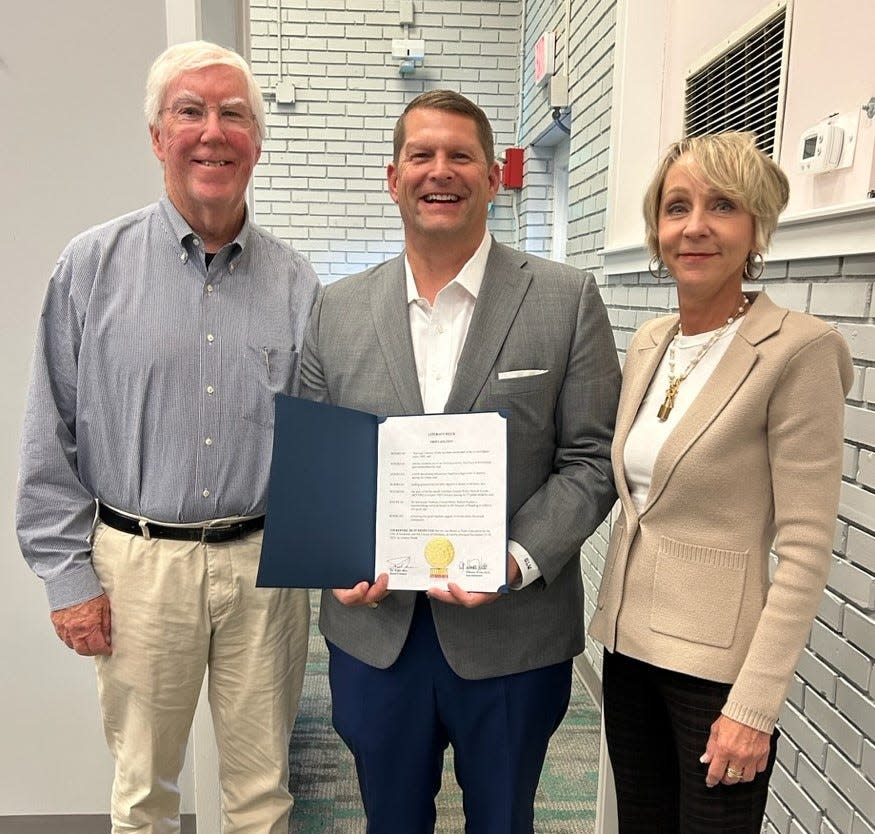'Literacy is this generation’s civil rights imperative:' advocate, educator Kareem Weaver

Editor's note: This article was updated to reflect the accurate title of Terri O'Neil as executive director of the Savannah Classical Academy Foundation, not the Savannah Classical Academy.
Literacy has been described by many as America's most solvable problem and is one that affects Savannah, particularly in schools.
About 57% of Savannah-Chatham County Public School System (SCCPSS) students are reading on grade level, which means 43% are not. That is according to a statement made in September by Deputy Superintendent of Teaching and Learning Bernadette Ball-Oliver. The district has taken many steps since to align with a new state law requiring districts to align with the science of reading, a research- and science-based interdisciplinary approach to teaching reading, writing and reading comprehension. SCCPSS Superintendent Denise Watts, Ed. D, has consistently referred to literacy as the district’s North Star.
The school board unanimously passed a proclamation declaring Nov. 12-18, as Literacy Week. As has Mayor Johnson and the City of Savannah as of Nov. 9, at the latest City Council meeting.
Literacy struggles in public schools: Two-thirds of elementary students cannot read at grade level. The district plans to fix it
Book Buzz: Former UGA star receiver’s Reading Rally gets Savannah second graders pumped about books
Literacy is the 'coin of the realm'
Literacy Week gets underway with a screening of “The Right to Read” at 7 p.m., Nov. 13, at the Lucas Theatre, 32 Abercorn St. The documentary, which is directed by Jenny Mackenzie, features national literacy advocate Kareem Weaver. A question-and-answer session with Weaver will follow the screening. It is free to the public, but seats are limited. Tickets can be secured at SCAD’s Box Office website.
Another opportunity to engage with Weaver will take place from noon to 2 p.m., Nov. 14, at the Charles Morris Center, 10 E Broad St., for Southeast Georgia Leadership Forum’s In The Boardroom session. The session also has limited seating available and costs $45 to attend.
The "Right to Read" documents portions of Weaver’s journey to change the literacy instruction policies of the Oakland Unified School District. His and the film’s central argument is that the right to read has gone unaddressed for too long. He said literacy is this generation’s civil rights imperative. He equated it to being the “coin of the realm" as it is needed to start a business, apply for a job and even browse the internet’s wealth of knowledge. "It is the antecedent to other rights.”
Weaver is the co-founder and executive director of FULCRUM (Full and Complete Reading is a Universal Mandate). He is also Oakland NAACP's second vice president and chair of its education committee. His influence for literacy instruction is the late Marva Collins, whose example he stumbled upon early in his teaching career. Collins, a Black female educator, started her own school in Chicago after frustrations with how public school districts she had worked for were being run.
“She leveraged what we call today the science of reading,” said Weaver. “Back then people didn't call it that. It was just good teaching."
'Right to Read' screened for educators: SCCPSS kicks off literacy teacher training with fanfare and film screening

The pillars of the science of reading
What Collins was doing ― and what Weaver advocates for now ― correlates to results of the research consensus of a few reports from the 1990s and early 2000s. He specifically discussed the Bureau of Justice report released in Jan. 1993. The report served as the basis for elements of the First Step Act, which was signed into law by President Donald Trump in 2018. The act provides eligible inmates the opportunity to earn 10 to 15 days of time credits for every 30 days of successful participation in evidence-based recidivism reduction programs and productive activities. Another major report that Weaver cited was the National Reading Panel’s report from April 2000. The report’s findings provide deeper insight into the effectiveness of the five pillars that make up the science of reading approach:
phonemic awareness: ability to identify and manipulate individual sounds in spoken words
phonics: letter-sound correspondences and their use in reading and spelling
vocabulary: body of words used in a given language or an individual's knowledge-base of words
fluency: ability to read orally with speed, accuracy and proper expression
comprehension: active process that requires an intentional and thoughtful interaction between the reader and the text
For years, many private and public studies have arrived at the same conclusions about science- or evidence-based reading instruction, yet updates to literacy instruction remain stagnant. Weaver said, “If it’s a football game, we're there. If it's a basketball game, we're there. If it's the Kardashians on TV, we're there. Our kids have a deficit of attention being paid to them.”

What is the Chatham Education Alliance?
The Chatham Educational Alliance (CEA) is responsible for Literacy Week being officially on the books. The organization has secured the licensing for the screening of “The Right to Read" and will be hosting Weaver's visit. CEA states that it “seeks an effective school system that benefits the entire community by educating all the children of Chatham County for productive lives.” CEA believes that the county has reached a "crucial turning point," that allows for risks and opportunities.
CEA is chaired by George Woods, the founding principal at Salt Marsh Consulting Group. The organization’s other members include:
Gertrude Robinson, a retired SCCPSS teacher and administrator
Lenorris Williams, a realtor
Amy Brock, a marketing professional
Gif Lockley, former principal at Savannah Arts Academy
Jae Di Lorenzo, an attorney and financial consultant
Jamal Barrow, a member of the U.S. Air Force
Rick Roney, a retired executive from California is on the Literacy Week Steering Committee for CEA. He has been a consistent presence at SCCPSS school board meetings and fervent advocate for improved public education policies. Terri O'Neal, executive director for Savannah Classical Academy Foundation, serves on the Steering Committee, as well. The two of them, along with Woods, recently accepted the SCCPSS Literacy Week proclamation plaque at the Nov. 1 school board meeting.
Literacy Week, particularly the film screening, marks the organization’s first major public event.
Joseph Schwartzburt it the education and workforce development reporter for Savannah Morning News. You can reach him at jschwartzburt@gannett.com.
This article originally appeared on Savannah Morning News: kareem weaver headlines savannah literacy week

